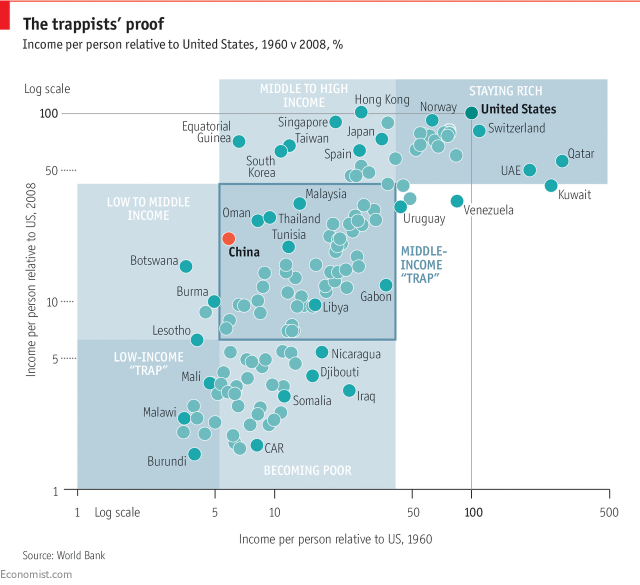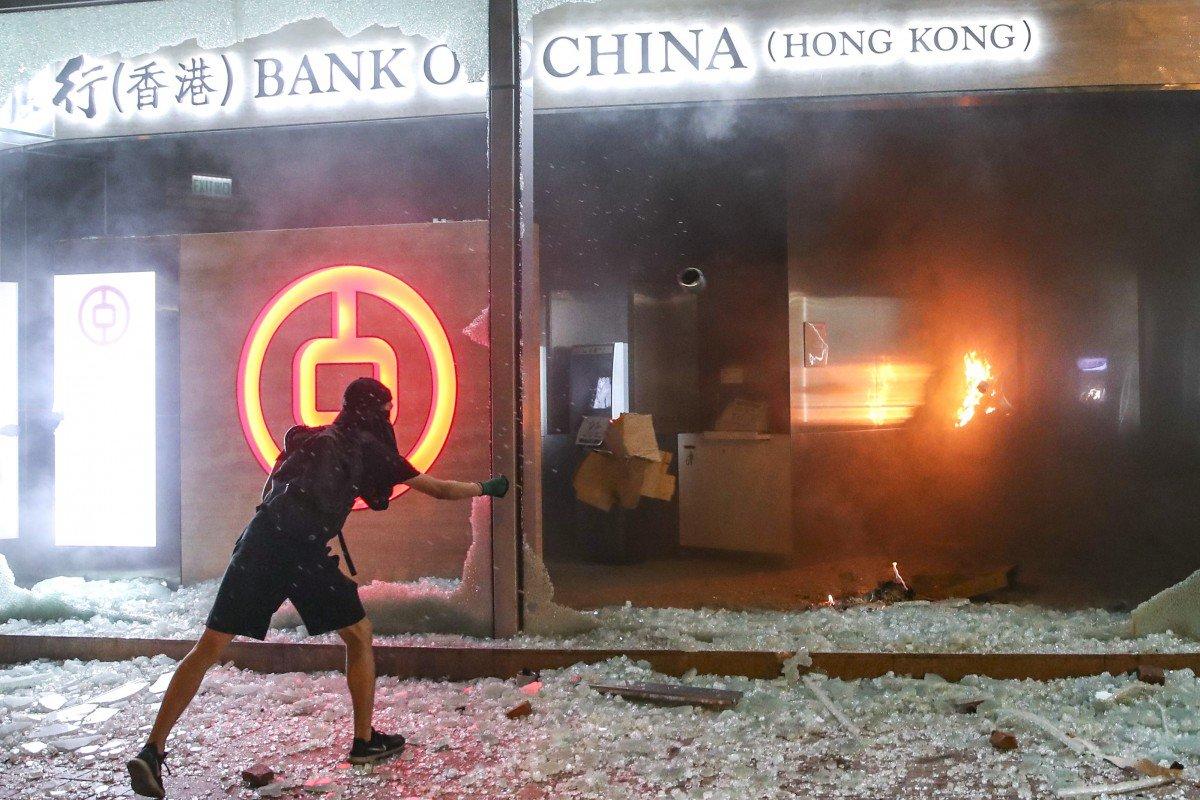Some Thoughts On China, The US Trade Dispute And The Hong Kong Protests
Submitted by Strategic Macro Blog,
China is one of the most important economic stories as it and the US have been the main contributors to global GDP growth in this cycle.
As we know, Trump has been driving his trade agenda and has forced China to negotiate; but discussions are stuck on three key points:
-
Forced knowledge and technology transfer in exchange for Chinese market access
-
IP theft
-
State subsidies for key industries
So why are these the key points and why is China so unwilling to negotiate on them?
The answer is that China is an authoritarian state, ruled by the Chinese Communist Party. Their ‘pact with the people’ has been growth, peace and stability in exchange for one party rule. It has worked pretty well for the economy, albeit with large imbalances built up.
As China recovered from the Cultural Revolution, the first stage of growth was in basic industries, then more advanced industries, then high tech and now aiming to be global leaders in new high tech industries.
So how do you make the leap from basic industries to high-tech? You put state resources into education and you invite foreign tech companies to set up manufacturing bases to access cheap labor. You also force knowledge transfer and allow domestic IP theft.
That growth strategy has brought China to the upper level of middle income status with median wages of around $12k a year. Below is a chart showing China’s progress relative to the US from 1960 to 2008 (the most recent one I could find). While China has moved up, relative to the US, its still in middle income status and there are a large number of other countries that are stuck in the middle income trap:
Targeting high-income jobs and industries
If we set aside development issues like corruption, capital flight, inefficient SoEs, lack of basic rights; in order for China to keep growing and avoid the so called middle income trap and get to high income status, China needs to generate hundreds of millions of higher income/ high productivity jobs, mainly in domestic services, but a significant number in goods producing and globally competitive export industries.
Put simply they need global leader companies that can compete in their markets. The problem is the global technology/ pharmaceutical/ biotech/ high end industrial markets are protected by patents and trade secret laws and the owners of those patents are US/ EU/ Japanese companies. To survive without subsidies in most mature global industries you need to be in the top 3 of each segment and while Chinese companies can achieve that domestically, they usually can’t globally.
So China needs to target the new industries where they can register patents and achieve scale and competitiveness. So the government provides state subsidies to companies like Huawei to help them become global leaders in the new markets as they open up. These are the same new markets that US/ EU/ Japanese companies want to compete in. But the Chinese companies can operate at break even or a loss for as long as it takes to drive foreign competition out of a new market. They can also invest whatever it takes in R&D for these new industries.
Trump is pushing back against this development model. But the problem the CCP has is their growth pact. They have to deliver higher standards of living and productivity to avoid falling into the middle income trap and these three core policies are their strategy to deliver it. Without these policies, it is not clear to me how they will create the numbers of high income jobs they need in order to escape middle income status. Then China would become little more than a large market for high end western goods, similar to Russia or India.
So overall it seems unlikely that China will make a full compromise on these areas and for now they are saying these key principles are non-negotiable. I suspect that next year they will try and position a compromise that is in their interest and does not effectively stop this development model.
If Trump does not really want a deal and just wants to make it look like he tried hard before ending negotiations and putting more tariffs on, he has the excuse already. I think this outcome is likely, but that Trump wants the bad news to come out in stages. Partly to not roil markets and partly as it takes years to reposition supply chains.
Hong Kong protests, could they spill into China?
The Arab Spring came about because a baby boom of young men born in the 1980s came of age, couldn’t find work and saw no future. It seems that the Hong Kong protests have similarities. Young Hong Kongers, who have no allegiance to the CCP, live in what is a developed market, but cant afford property and lack the basic self-determination rights.
The Hong Kong authorities can act to bring down real estate prices, but giving democracy and greater rights seems to be incompatible with the Mainlanders not having those same rights. My former colleagues, who are Chinese and based in Hong Kong, are expecting a ruthless crackdown on the protesters by the CCP at any time.
The risk is that leads to more protests and more loss of control or even the protests starting in China itself. My former colleagues are fairly sceptical of this spillover happening, given CCP brainwashing and control of media and communications. They also think the CCP would ruthlessly end any initial Mainland protests, out of sight of the global media.
But I think this comes back to the common issue. If the CCP fail to deliver their growth pact and China starts to stagnate in middle income status, with many economic imbalances built up or starting to unwind, perhaps there can be protests in China as well.
If that happens and the CCP start to lose control, it would trigger a 1997-style Asian and EM meltdown as commodity prices and the flow of USD’s to EM collapse. While China runs a large trade surplus with the US and EU, it runs almost a $200bn goods deficit with Asia and EM.
I don’t know how likely it is that Mainland protests start and my former colleagues are confident they would be ended ruthlessly, as the CCP’s primary aim is survival, but given the potential of this scenario, its worth considering the possibility and the impact it could have.
Tyler Durden
Thu, 10/31/2019 – 20:05
via ZeroHedge News https://ift.tt/2C2mWIi Tyler Durden

